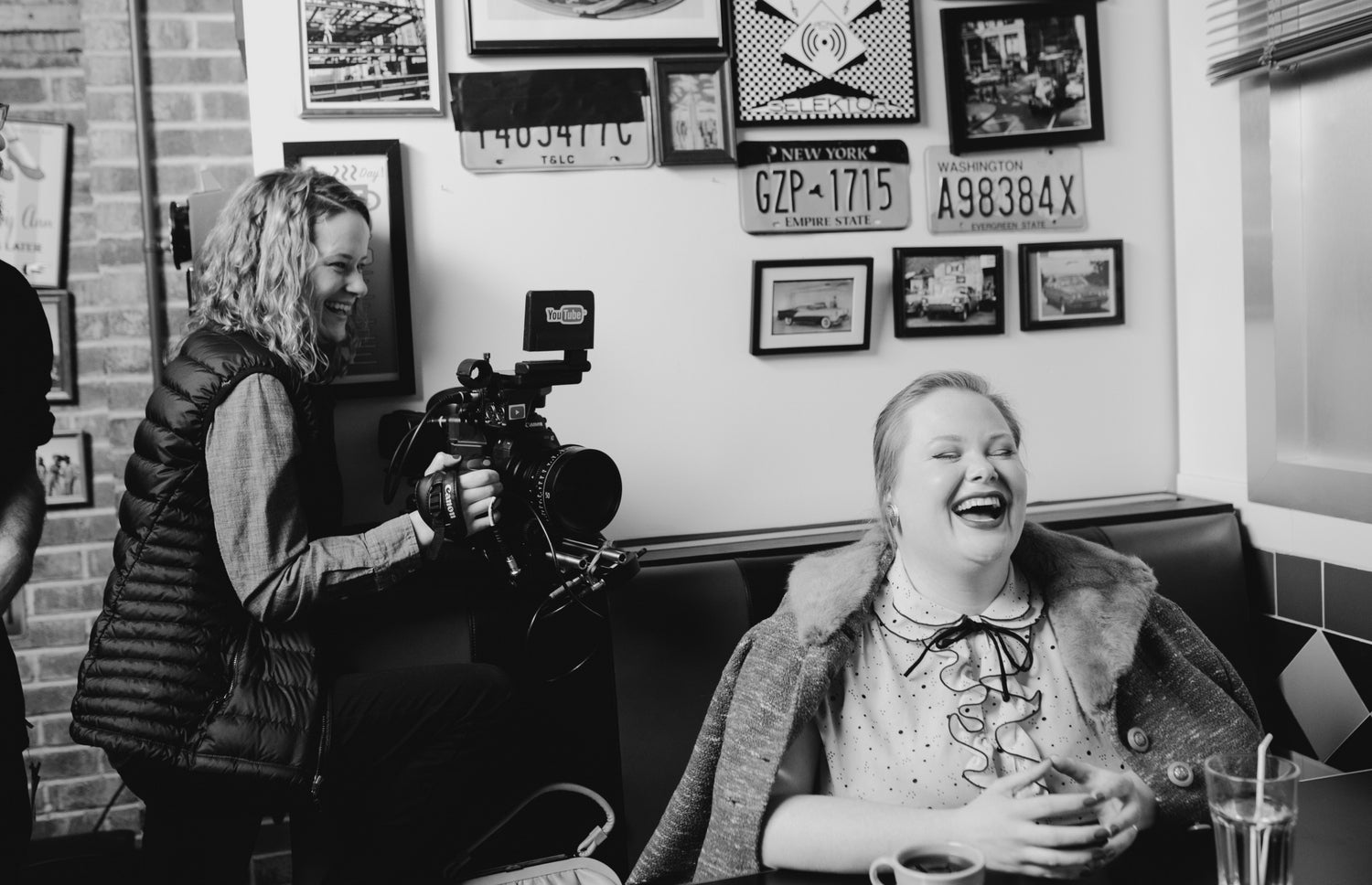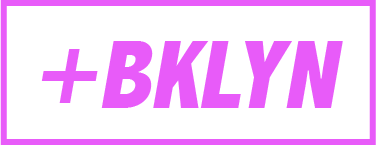

· By Brianne Huntsman
Jen Ponton is Increasing Representation in Hollywood
You might know rising star Jen Ponton from Dietland or 30 Rock or Love on the Run, but this New York based actress has a lot more up her sleeve.
The co-creator and star of the new pilot Queens of Daytime is now writing, producing, and pitching her own stuff--and she’s got a fat acceptance agenda. Queens of Daytime brings a splash of fat love to a genre we don’t get much representation in: whimsical period pieces.
In Queens, it’s 1958 in New York, and Addy (Ponton) is the brand-new producer of a schmaltzy soap opera. Not only are we here for her cheesecakey, pinup looks (because we definitely are), but she’s using the historically-accurate plot to give other underserved voices a platform, too.
I loved the first episode, @JenPonton ❤️ I can't wait for more! #QueensofDaytime https://t.co/1QcaKd1ccP
— Sarai Walker (@QueSaraiSera) April 4, 2019
The series focuses on the burgeoning civil rights movement, and includes several queer relationships. Maybe it will actually be fun to watch a period piece again?
We sat down with Ponton to discuss her new show, and being a leader in the industry.
You can watch the Queens of Daytime pilot by clicking here.
PBK: Queens of Daytime stars a plus-size lead in a role that’s not about her body. What about this speaks to you?
In my mind, there’s an evolution of fat character representation. Up until recently, that representation has been sad, fat characters who hate their bodies, with a few outliers. Then recently, fat characters who start sad but then learn to love themselves. Now, my guess is that we’ll be focusing on characters who are fat and proud, point blank. And I love that!
But what I’m really looking forward to is, I think, the ultimate level of fat acceptance--characters who are fat, aside from plot line. It’s going to give us such a sense of freedom that tropes don’t get to dictate what we’re allowed to be. To me, this is the future of actual size acceptance.
PBK: Your co-writer, Louise Shaffer, is known for a long, illustrious career in soaps. What was your experience teaming with an actress from an older generation?
Louise and I have shared a really special kinship. Because she’s quite tapped into what’s going on socially and politically, I think she’s served as a great barometer for how progressive--or regressive--things are at the moment. She has an appreciation for how far we’ve come, or how some things seem frighteningly unchanged. She was both pleased and amazed at the freedoms that have opened up for women in filmmaking and production.
#QueensofDaytime. Coming tomorrow. 💋 pic.twitter.com/altJGupoDS
— Jen Ponton (@JenPonton) April 3, 2019
She really appreciated that a plus-size woman was able to enjoy a career without changing her body--even though I know we’re only beginning to crack that nut. She comes from a time when not being a size 2 or 4 was enough for producers to put you on amphetamines or write you off the show, so there’s a real gratitude for the sea change that has been happening.
PBK: Queens of Daytime was written, produced, and directed by women. How do you hope this will impact the future of entertainment?
I’m coming right off a set that was completely controlled by women (Dietland). After experiencing how wonderful that felt in every sense--a safe space, an empowered space, a woman’s gaze, strong leadership without bravado or egos--it was something that I wanted to emulate any chance I got!

Images via Bruna Lacerda
Women are accustomed to having to do much more to get much less--so you’d better believe that we are dynamic problem solvers, fast workers, and keep the peace more easily. On top of that, I want to help other women build their resumes and succeed. That’s an ethos that will follow me into any project that I do, especially prioritizing marginalized women.
PBK: With a spotlight on plus visibility, how are you hoping to contribute to fat acceptance?
It’s been such a joy and a thrill to see the fat acceptance/body positive community grow as it has since my early days! There are so many incredible individuals cultivating businesses, platforms, and brands, and I think it’s all wonderful. Look at what’s happening for Lizzo!
As a storyteller, my primary aim is to normalize a larger body as a leading lady on a screen. I want the normalization of my body to help unlock the love that others have been keeping from themselves for so long. I want anyone who’s been told they’re not enough--because they’re the wrong skin shade or too big, too small, too femme, too masc, too old-- to help embrace themselves a little bit more. To keep them from dimming their shine. Finding my worth turned my life around, and I want to facilitate that for as many people as I can.
PBK: How did your life lead you to fat activism and performing?
From a very young age, I knew that I wanted to be an actress. I was always the ham of my family, hosting holidays with a toy microphone, and it’s like… I just happened to be in a fat body.
I knew it made a lot of things unattainable for me, and I had made peace with the idea that I’d never get to play Juliet or a Disney princess. I was beginning to struggle with that when I was out of college, auditioning for musical theatre--see, I don’t have a voice that a fat body gets to sing with. Fat girls on Broadway have to be big, brassy belters and mezzos--not lilting, flowery sopranos, like me. My voice is meant for thin ingenues.
I would audition every day, showing up to open calls at 6am, and I would never make it into any callbacks. Theatre at large is still incredibly sizist and tropey. Just as I was beginning to doubt my path, I discovered the Fat-O-Sphere (the fat acceptance blog circles that pre-dated social media). I began reading blogs and essays by incredible fat intellectuals--women who taught me about intuitive eating, health at every size, fatshion, and just the corporeal right to occupy space. I’d come home from my disheartening auditions and read blogs all night; it was like getting an informal masters.
Foundational activists for me included Substantia Jones, Lesley Kinzel, Kate Harding, Marianne Kirby, Ragen Chastain, Marie Denee, Lindy West, and so many more. I had come from a lifelong warring with my body, and this work helped me reclaim it--and in doing so, I realized that I needed to learn to love my body in order to do the work I want to do.
My body does not define me--but the way I embody it defines the way I affect change with my art, and that is where I feel so much potential.
Thank you for a fabulous interview, Jen!
To learn more about Jen, you can find her @jenponton on Twitter and Instagram, as well as her website: www.jenponton.com
